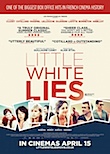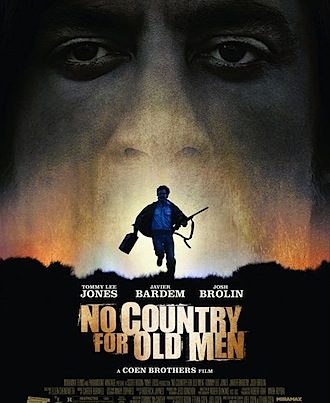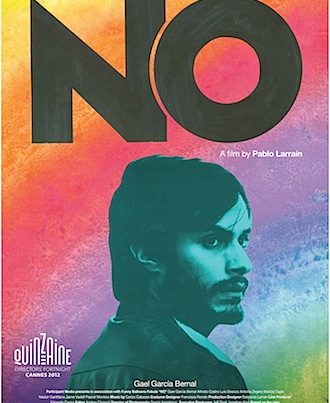 With The Devil’s Rock, Wellingtonian Paul Campion has created an effective slice of pulp cinema, perfectly pitched to fly off video store shelves around the world. A fiendishly simple idea – Nazi Devil-worshippers – is executed with a panache that belies the tiny (virtually) self-funded shooting budget. Despite being some distance from everyone’s cup of tea, The Devil’s Rock knows its intended audience and shouldn’t disappoint them.
With The Devil’s Rock, Wellingtonian Paul Campion has created an effective slice of pulp cinema, perfectly pitched to fly off video store shelves around the world. A fiendishly simple idea – Nazi Devil-worshippers – is executed with a panache that belies the tiny (virtually) self-funded shooting budget. Despite being some distance from everyone’s cup of tea, The Devil’s Rock knows its intended audience and shouldn’t disappoint them.
Just before D‑Day in 1944 a pair of NZ commandos (Craig Hall and Karlos Drinkwater) silently beach themselves on a remote Channel Island. Their mission is to disable the German guns, and fool the enemy into thinking the Allied attack will be more than 150 km further west than the real plans to land at Normandy. As they make their way inside the spooky fortifications an unholy scream from the depths below raises the hair on the back of their necks and introduces them to a terror more … terrifying than anything in their original mission.
Inside the bunker, Drinkwater and Hall – still mourning for his wife, lost in the Blitz – find strangely mutilated German corpses and, eventually, a single German officer (played by the always interesting Matthew Sunderland). With the help of a mysterious book of witchcraft, and on the orders of the Führer, he has summoned a demon to help them win the war – but things haven’t gone according to plan and if the hungry fiend gets loose it will be more than the war that is lost.
Set in a suitably claustrophobic two rooms beneath the gun emplacement, can the German and the Kiwis bury their differences and make the world safe for both sets of armies? That would be revealing too much – suffice to say that the twists and turns won’t surprise genre afficionados but are handled decently enough, at least until an ending that seems a bit rushed.
 For a work of almost unsurpassed Hollywood craftsmanship, you should get yourself along to the re-release of The Lion King. Only 90 minutes long, the storytelling (credited to 29 different writers according to IMDb but really a product of the ruthlessly efficient Disney machine) is impeccable with every scene and every line contributing to the grand themes while making excellent use of some archetypal story types. Tested and true, The Lion King continues to deliver to all ages and belongs in every home.
For a work of almost unsurpassed Hollywood craftsmanship, you should get yourself along to the re-release of The Lion King. Only 90 minutes long, the storytelling (credited to 29 different writers according to IMDb but really a product of the ruthlessly efficient Disney machine) is impeccable with every scene and every line contributing to the grand themes while making excellent use of some archetypal story types. Tested and true, The Lion King continues to deliver to all ages and belongs in every home.
Maybe not in 3D though – which is the only way you can see it on the big screen this time around. The old-fashioned hand-drawn animation had a perfectly acceptable 2D feel and, unlike modern computer animation, there are no textures that 3D can bring to life. It looks like paint on canvas and that’s kind of the point. The Lion King doesn’t lose anything with the addition of 3D but it’s pretty redundant all the same.
 It’s nice to be able to report on a recent commercial French movie that isn’t destined for a US remake but only because the Hollywood version of Little White Lies already exists – it’s called The Big Chill. A group of friends gather together in the country to catch up and renew old relationships but there’s a cloud hovering over them all – an absence that none of them are able to confront.
It’s nice to be able to report on a recent commercial French movie that isn’t destined for a US remake but only because the Hollywood version of Little White Lies already exists – it’s called The Big Chill. A group of friends gather together in the country to catch up and renew old relationships but there’s a cloud hovering over them all – an absence that none of them are able to confront.
Like The Big Chill, the strength of Little White Lies is in the characters, different enough that you can tell them apart but similar enough that you can believe that they actually would be old friends. And, like The Big Chill the soundtrack is full of audience-friendly FM hits. The ensemble – guided by writer-director Guillaume Canet – is terrific but special mention must go to tough-on-the-outside but lonely-on-the-inside ethnographer Marion Cottillard (La Vie en Rose) and vulnerable hard-ass François Cluzet (from Canet’s thriller Tell No One) who is very funny throughout.
This is still the same French film that they are always making, though, self-involved bourgeois city-dwellers getting lesson about living from a real down-to-earth hard-working country person – the French even call it la France profonde – but it’s handled so well by the entire ensemble that it’s really only a minor quibble. And it’s not as if they’re going to stop making them on my account. Word of warning – don’t arrive late. The beginning is crucial to an appreciation of the rest, more so than usual.
Printed in Wellington’s Capital Times on Wednesday 31 September, 2011.



